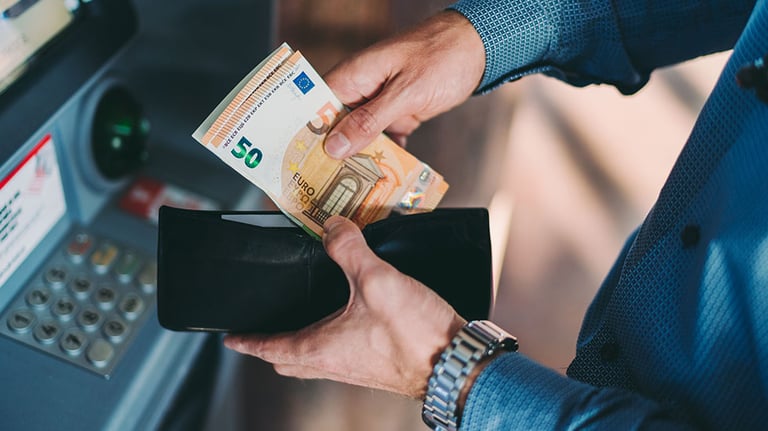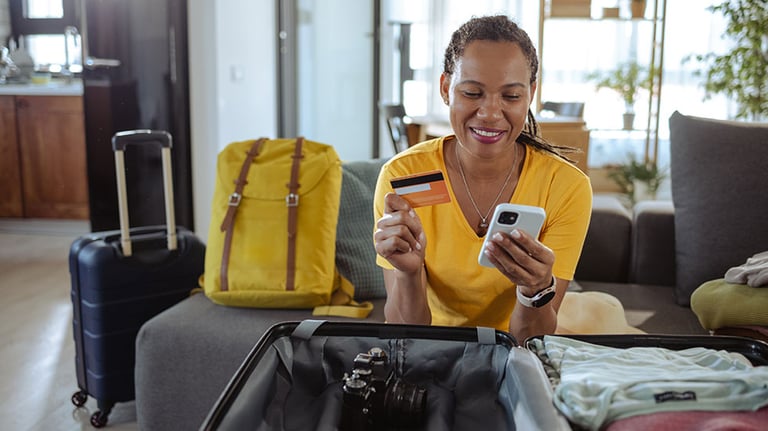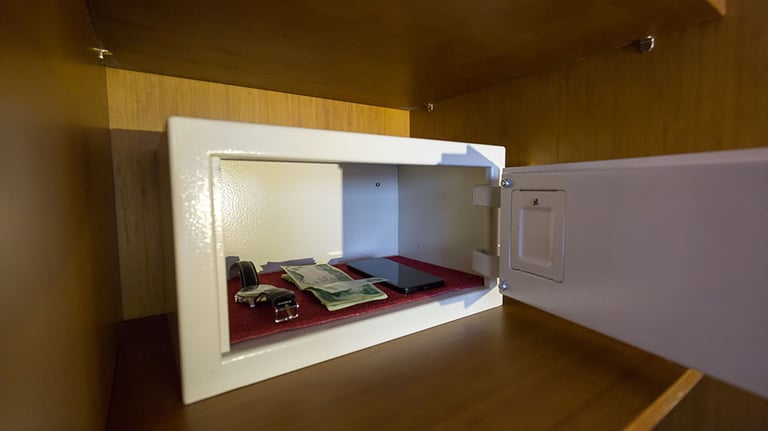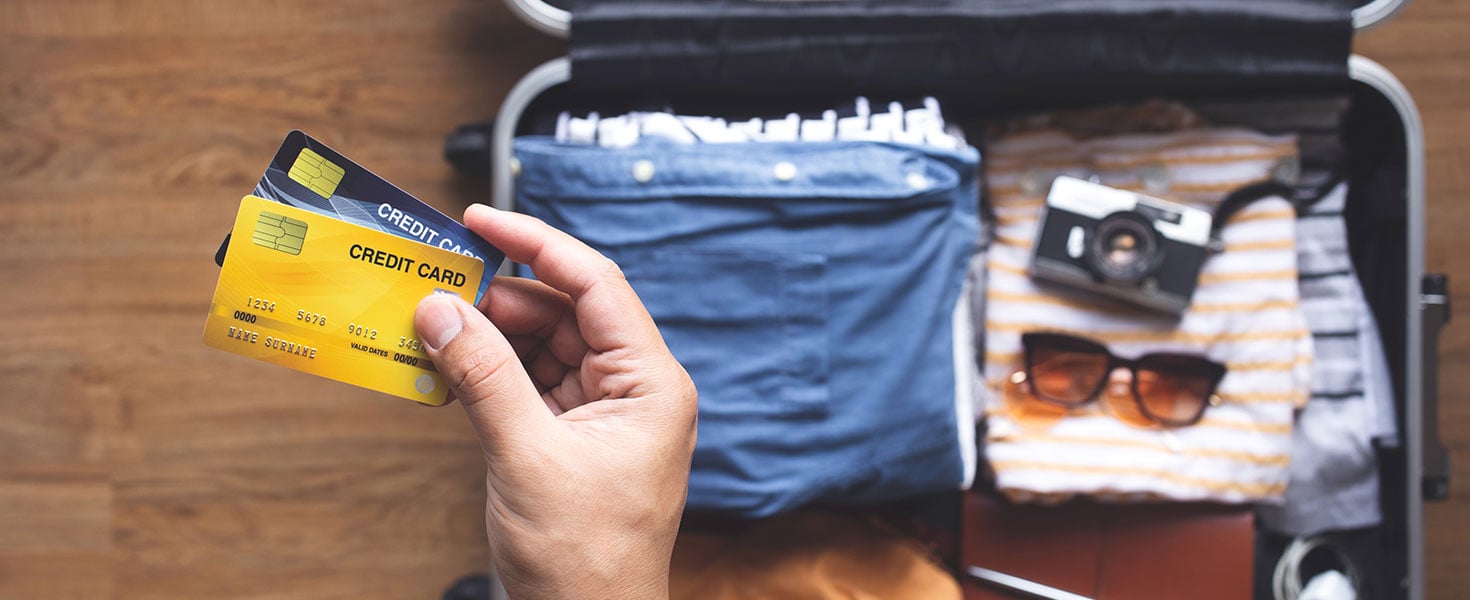
Traveling already comes with its own set of challenges and stressors: delayed flights, lost luggage, and unfamiliar places, to name a few. Now, imagine the added stress of discovering that your only credit card isn’t working while you're far from home. Not exactly ideal, right?
That’s why having a backup credit card is important. Not only does it provide an alternative payment option, but it also offers peace of mind. Let’s explore why having at least two credit cards while you travel is essential—and how to use them responsibly.

Have a backup for payment issues
In the US, there are four major credit card networks: Visa, Mastercard, American Express, and Discover. These networks connect the store and the bank that issued your card. Visa and Mastercard partner with a wide range of banks to issue cards, while American Express and Discover issue cards directly and operate their own networks.
Because Visa and Mastercard have more banking partners, they’re typically accepted almost everywhere, both in the US and abroad. American Express and Discover, however, may not be as widely accepted, especially outside the US.
If your primary credit card is American Express, it’s a good idea to carry a Visa or Mastercard as a backup. That way, if your card isn’t accepted by a merchant or there’s an issue, you’ll have another option ready. When choosing the best second credit card for travel, look for one with wide acceptance and minimal foreign transaction fees so that you’re covered no matter where you are.

Have a safety net for a lost or stolen credit card
Whether you accidentally leave your credit card at a restaurant or a pickpocket steals your wallet, it’s easy to lose your credit cards while traveling. If your main credit card gets lost, stolen, declined, or frozen, having a backup card can save you a lot of stress and ensure that you can still pay for what you need.
It’s wise to bring a backup card from a different bank or issuer than your primary one. That way, if your main account is frozen, you’ll have an alternative. If all your cards are from the same bank and something goes wrong, you could be stuck without access to any of them—which can be a major hassle, especially during a purchase or if you can’t reach your bank. Choosing the best backup credit card for your travels ensures that you’ll always have a secure option in case of emergencies.

Store a spare credit card in a safe place
A backup credit card can be a safety net if your main card isn’t working or you leave it behind somewhere. But if your wallet gets lost or stolen and both credit cards are in it, that doesn’t do you much good. To avoid this situation, keep your backup credit card somewhere secure, such as a hotel room safe. This way, you’ll always have a spare credit card for emergencies.

Protect your credit cards while traveling
Traveling with a backup credit card is a smart way to make sure you can pay for things while on vacation. But keeping your credit cards safe is just as important. Here are some easy tips to help protect your cards while you’re away.
Use credit cards, not debit cards. When you're traveling, it's wise to use credit cards for purchases and save your debit card for cash withdrawals. Why? Credit cards usually offer zero fraud liability, which means you're not responsible for unauthorized charges. Debit cards offer less protection, as stolen funds would come straight out of your bank account.
Be cautious with ATMs. Stick to reputable bank ATMs for cash withdrawals. Sometimes, thieves use devices called “skimmers” to steal information from your card’s magnetic stripe. Skimmers are devices, illegally installed on ATMs and gas pumps, that secretly read credit card information, allowing criminals to steal details to make fraudulent purchases. To protect yourself, learn how to spot a skimmer on an ATM or spot a skimmer at a gas pump. Luckily, chip cards are a safer option than the traditional magnetic stripe cards because they generate a unique transaction code each time they’re used. This makes them harder for criminals to clone.
Keep your card in sight. Always keep an eye on your credit card. In many European restaurants, for example, they use portable payment machines so that your card never has to leave your table, helping to protect it from theft.
Notify your card issuer before you travel. Before you leave, let your credit card companies know of your travel plans so that they don’t freeze your cards for suspicious activity. Some credit cards can track your location, but if yours doesn’t, it's best to give a heads-up before your trip.
Stay vigilant. Be alert to pickpockets, especially in crowded places or when someone bumps into you. To lessen your risk of theft, keep your hands in your pockets and carry your purse in front of you, making it harder for thieves to swipe anything. Stay calm, organized and aware of your surroundings, even when you're in a hurry.
When packing for your trip, make sure to include an extra credit card—just in case. Even if you don’t use it, you’ll have peace of mind knowing you can still pay if something goes wrong with your primary credit card.

